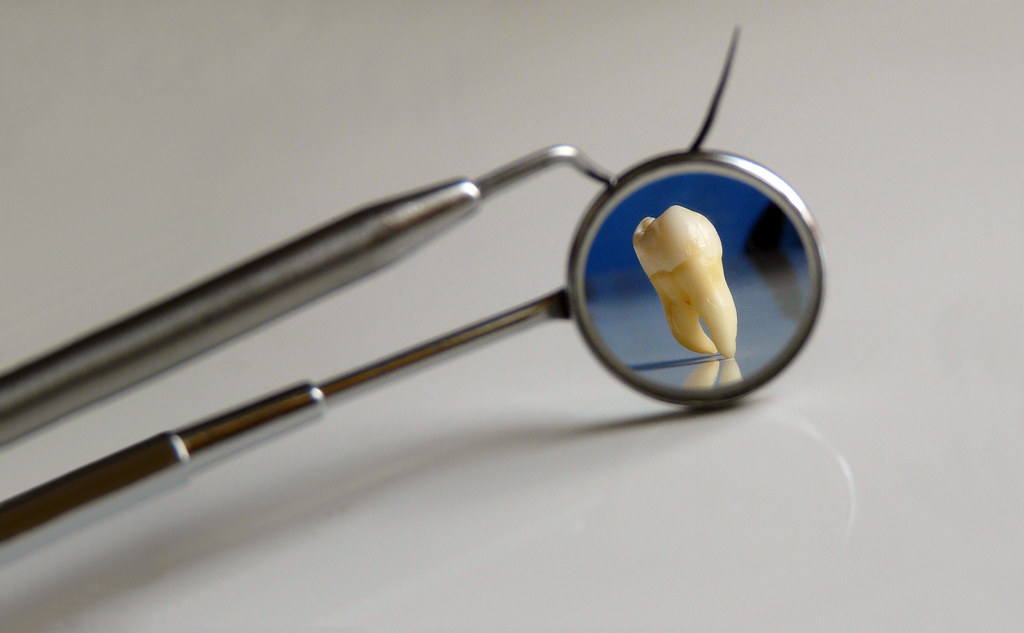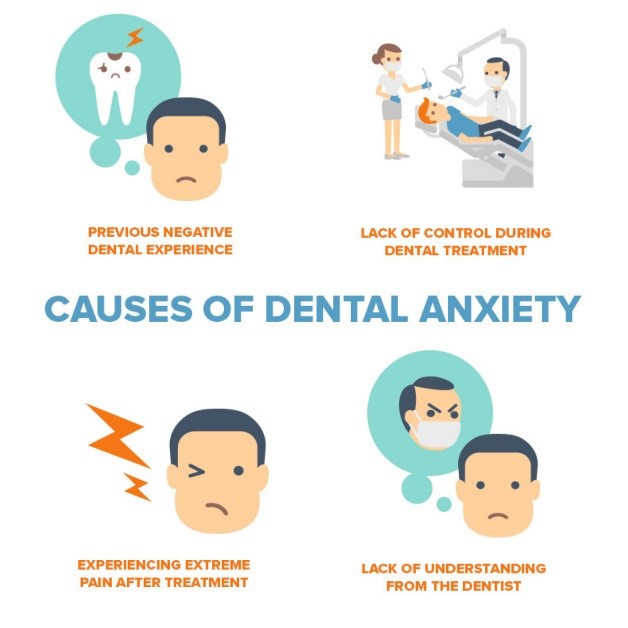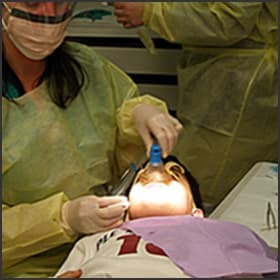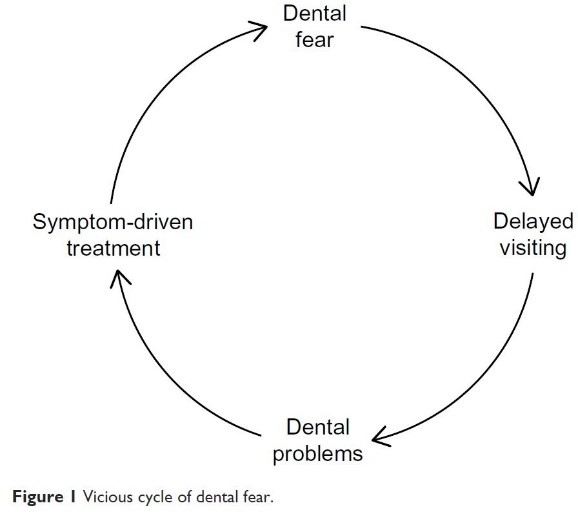SHARES

Do you feel nervous, and shudder just thinking about going to the dentist? Be it getting a filling done or even just a simple clean and polish? You are not alone. 36% of dental patients have a certain degree of dental anxiety but majority of them are able to get through dental treatments unfazed.
I have patients who delay or avoid dental treatments due to dental anxiety, much to the detriment of their oral health. They simply fear walking into a dental chair, feel anxious and become tensed and stressed in the clinic.
Generally, the drills, needles or the environment in the dental clinic trigger the anxiety. When dental anxiety is extreme and severe, causing complete avoidance of visiting the dentist, it is dental phobia, a more serious condition. The fear is irrational but you are unable to deal with it. In such cases, you may need a psychiatrist to help you.
 Image source
Image source
Dental Anxiety – Signs and Symptoms
You may have dental anxiety if you experience:
- Sweating
- Palpitations or increased heart rate
- Signs of panic and visible distress
- Low blood pressure, may lead to syncope (fainting)
- Withdrawal, refuse to go to the dentist
- Routinely missing dental appointments
Causes
 Image source
Image source
There are many factors which can contribute to dental anxiety, such as:
- Fear of pain, the drills and needles
- Past traumatic dental experience
- Generalised anxiety, depression or post-traumatic stress disorder
- Previous injuries to head and neck, or past abuse experience
- Consistent feeling of helplessness
- Trust issues
- Conditions such as claustrophobia (fear of closed spaces), agoraphobia (fear of being unable to escape a situation)
- Cost issues
Tips to Manage and Cope
Avoiding going to the dentist can lead to poor oral health. As a result, there is a greater need later for urgent care or more complex treatment or worse still, ends in the loss of the tooth. Subsequently, this worsens the problem of dental anxiety leading to what known as ‘vicious cycle of dental anxiety’.
There are many ways to cope with dental anxiety. For instance:
1. Speaking up
Tell your dentist and the dental team about your anxiety. Agree with the dentist on a signal, for instance, raising your hand if you need to take a break during the procedures. Do not be afraid of asking questions so they will know better how to treat you.
2. Distraction
Wearing headphones may help if the sound of drill bothers you. Besides, handheld objects such as a stress ball or fidget spinner may help to distract you during your dental visits.
3. Mindfulness techniques
Practise deep breathing exercises can help to relax tension in your muscles. This can be done while waiting for your appointment or during breaks on the dental chair.
4. Cognitive therapy
Cognitive therapy strategies aim to restructure the thinking and enhance control over the negative thoughts about dental treatments. Some different cognitive techniques include encouragement, guided imagery, focusing attention and thought stopping.
5. Relative analgesia (Laughing gas)
More severe dental anxiety may require management such as nitrous oxide sedation, also known as laughing gas. A mixture of oxygen and nitrous oxide is given through a mask to give a relaxed sensation.
 Image source
Image source
6. Conscious sedation
This type of sedation involves delivering sedating medication through a drip into a vein of the arm or hand. Patients can respond to verbal prompts but may have side effects such as drowsiness and nausea after the procedure. Not all dentists provide intravenous sedation.
Conclusion
The key to coping with dental anxiety is to communicate with your dentist. Once he or she is aware of your concerns, the dentist will be better able to make you more comfortable and less anxious. So, manage your anxiety and don’t allow it to miss your regular dental check-ups. They are so important to detect any problems earlier to maintain good oral health.
If you need to consult a Dental Surgeon: call, send an enquiry or book an appointment on GetDoc.
Find a Dental Surgeon in Malaysia, on GetDoc
Find a Dental Surgeon in Singapore, on GetDoc
by Soh May Leng
Born and raised in Malaysia, May Leng obtained her Bachelor of Dental Surgery from the University of Otago, New Zealand. She has joined the GetDoc team to relay valuable health information to the public. Staying active plays a big part in her daily life especially through outdoor sports such as running and swimming. She also enjoys travelling and has a passion for photography. View all articles by Soh May Leng.







